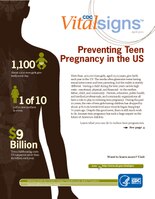
Photo from wikipedia
Abstract Given that repeat pregnancy is an issue of concern in many developing countries, this study focused on the phenomenon among teenage mothers in Ghana. The objectives of the study… Click to show full abstract
Abstract Given that repeat pregnancy is an issue of concern in many developing countries, this study focused on the phenomenon among teenage mothers in Ghana. The objectives of the study were to explore factors contributing to repeat pregnancy, contraceptive knowledge, and barriers to contraceptive use among teenage mothers with repeat pregnancy. A qualitative research design was utilized, and convenience and snowball sampling methods were utilized to recruit 41 participants for the study. This consisted of 33 teenage mothers and eight health workers from Mamprobi Polyclinic, Accra, Ghana. Data were collected using in-depth individual interviews and focus group discussions and analyzed thematically. The findings indicated that factors contributing to repeat pregnancy were: low level of education, truancy, early marriage, poverty, peer pressure, and sexual coercion. Additionally, health facilities, families, friends, and schools played crucial roles in disseminating information on family planning. However, barriers to using contraceptives included: stigma, religious and cultural beliefs about contraceptives, lack of control over contraceptive decisions, and myths about contraceptives. It is concluded that many teenage mothers are at risk of repeat pregnancy. Thus, it would be useful for stakeholders to promote education on teenage pregnancy, family planning, and available support services.
Journal Title: Children and Youth Services Review
Year Published: 2020
Link to full text (if available)
Share on Social Media: Sign Up to like & get
recommendations!